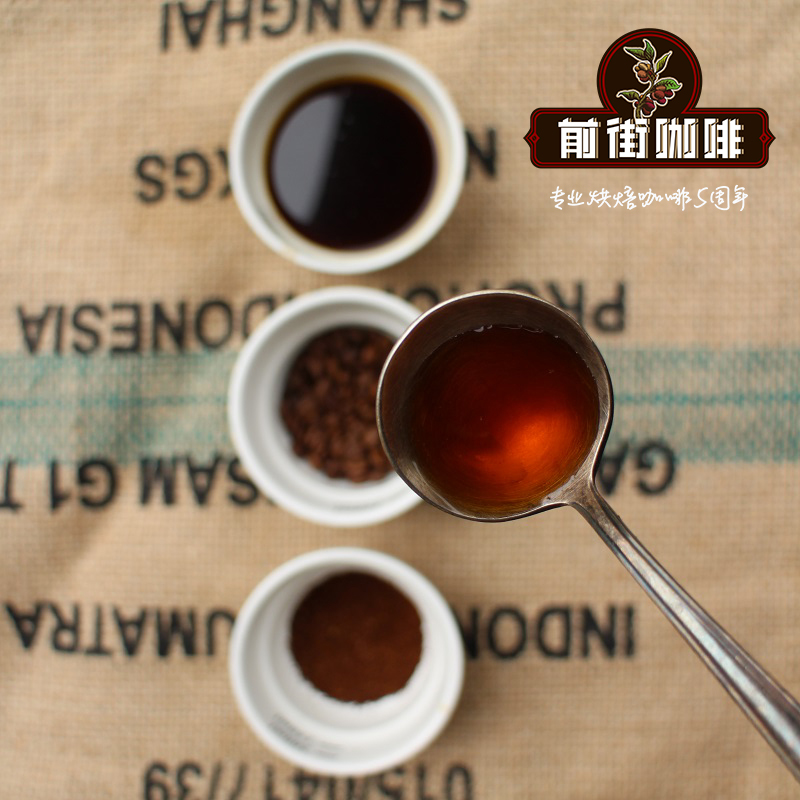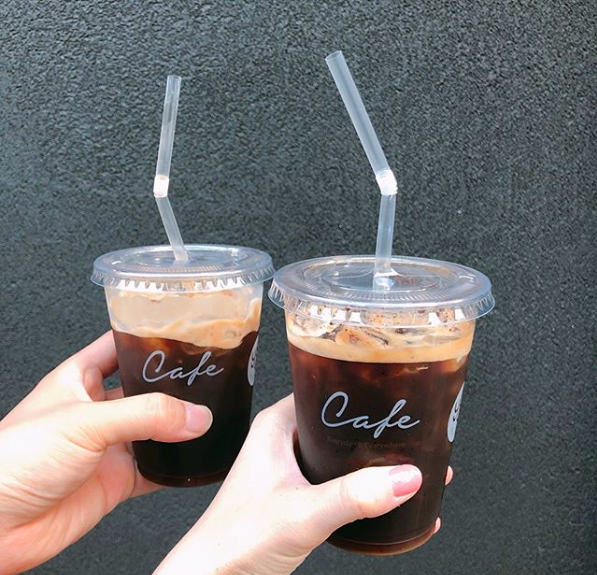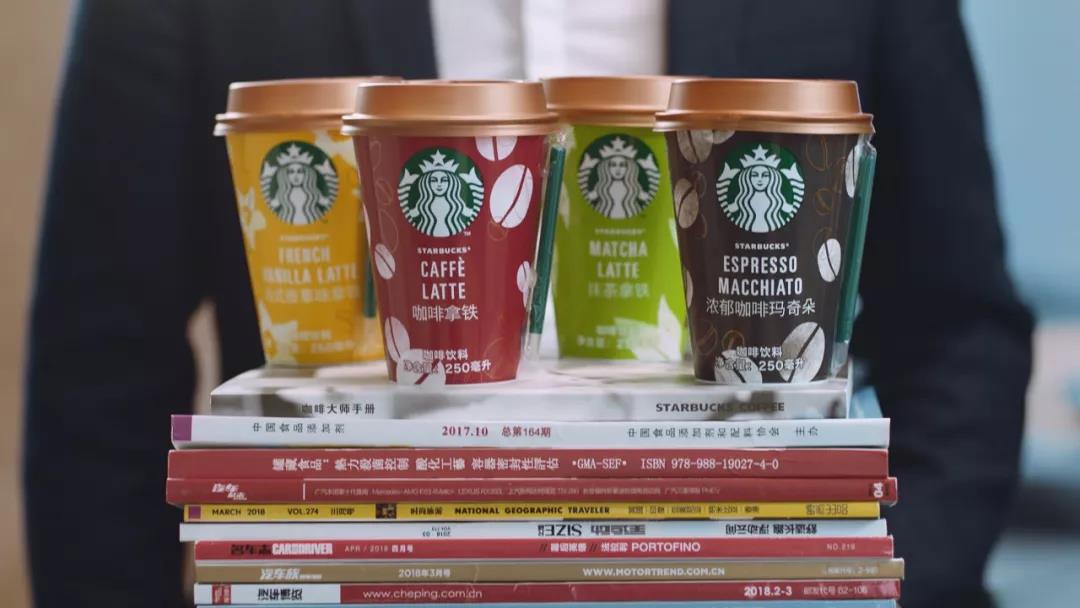The world's first block chain traceability coffee-Uganda block chain coffee introduction

Professional coffee knowledge exchange more coffee bean information please follow the coffee workshop (Wechat official account cafe_style)
Blockchain technology has become a new technology in various industries, and even coffee has caught on this craze combined with blockchain for consumers to trace the source of products on the shelves and clearly grasp the entire coffee supply chain.
■ Denver's Coda Coffee Co.is offering what it calls "the world's first blockchain-traced coffee", giving customers access to a cloud-based ledger that tracks every stop along their coffee's supply chain.
The blockchain craze set off by cryptocurrencies is sweeping all industries, and even coffee has something to do with this popular technology. A coffee manufacturer in Denver, Colorado, USA has launched what is known as "the world's first blockchain traceability coffee". From coffee beans harvested from Ugandan farms to shelves and sold, the whole supply process is fully grasped.
The initiative of Coda Coffee, a Denver coffee company, allows customers to track every aspect of the coffee supply chain through cloud books. After scanning the QR Code on coffee bean packaging, they can know the dates and locations of coffee transactions from the origin of harvest, washing, drying, grinding, export, roasting to retail.
Coda Coffee's blockchain, which dates back to Ugandan coffee beans, costs US $14.25 for 12 ounces, about the same price as the average 12-ounce bagged coffee.
Tommy Thwaites, founder of Coda Coffee, said: "this allows customers to get coffee information whenever and wherever they need it, and all the way back to coffee farmers."
Coda Coffee's traceable coffee beans, native to the East African country of eastern Uganda, are lemon-flavored coffee beans screened and packaged by a new machine on the farm called Bextmachine. The Bextmachine, designed by Denver startup Bext360, can handle about 50 kilograms of coffee beans per minute.
Bextmachine can scan the outside of each coffee bean in 3D to provide more information about supply chain companies such as Coda Coffee. This machine can provide more details on the quality and characteristics of farm coffee beans, helping wholesalers and bakers to distinguish the special flavor of various beans, so that they can adjust the source of purchase of coffee beans in the future.
Save the paper work and reduce the cost
Bext360 charges 1 to 2 per cent of the wholesale price of coffee beans for coffee producers and bakers who use machines and blockchain projects. The company says its services can save paper work and other routines and cut supply chain costs.
Daniel Jones, founder of Bext360, said the company's blockchain service could solve the problem of unstable income of farmers in coffee-producing areas. In the past, coffee farmers had to look at the face of the middleman and whether they could get a good price depends on their assessment of the quality of coffee beans. "We can pay a little more for this high-value crop," Jones said. If you can get coffee producers to have more money, there will be a better supply chain. "
Tech-savvy consumers want to know more about their consumer products, and companies are looking for more effective ways to trace their relationships with suppliers.
From finance to food to the real estate industry, many operators are eager to try blockchain technology. Cargill, a multinational agribusiness, is trying to use blockchain technology to allow consumers to trace the source of turkeys sold in stores. Knotel, an office-sharing company, uses blockchains to list offices available for short-term rentals in 45 buildings in big cities such as New York, San Francisco and London.
The supply chain is complex and adaptable.
Coffee suppliers are scattered all over the world, and the supply chain covering wholesale markets and regional distributors is very complex, which is very suitable for the application of blockchain technology to enhance the transparency of the production and marketing process.
Starbucks, the global coffee chain, announced in March that it would launch a two-year pilot project to use blockchain to develop "traceability technology" on coffee farms in Costa Rica, Colombia, Rwanda and other countries. Arthur Karuletwa, head of Starbucks' traceability division, said it was an upheaval for the coffee industry.
Important Notice :
前街咖啡 FrontStreet Coffee has moved to new addredd:
FrontStreet Coffee Address: 315,Donghua East Road,GuangZhou
Tel:020 38364473
- Prev

New test tube nitrogen cold brewed coffee from Korean convenience store, nitrogen coffee that can be drunk anytime, anywhere.
Professional Coffee knowledge Exchange more information about coffee beans Please follow the hot summer days of the coffee workshop (official Wechat account cafe_style). There is nothing more satisfying than gulping a cup of iced coffee! If there is, it is to drink a cup of nitrogen iced coffee which is the most popular in recent years! But nitrogen coffee doesn't seem to be easy to make. Apart from waiting in line at a Buck store, what else is there?
- Next

Starbucks China canned extra thick cup refrigerated coffee on the market! Is the age of canned coffee coming?
Professional coffee knowledge exchange more coffee bean information Please follow the coffee workshop (Wechat official account cafe_style) A few days ago, the new product of Tiantian learned that Starbucks has added its new ready-to-drink coffee product, launching a new ready-to-drink coffee product called Starbucks alcoholic espresso beverage packed in cans. In the past, there were only glass bottles of ready-to-drink coffee in China. Today, new products are the most popular.
Related
- Can I make coffee a second time in an Italian hand-brewed mocha pot? Why can't coffee be brewed several times like tea leaves?
- Hand-brewed coffee flows with a knife and a tornado. How to brew it? What is the proportion of grinding water and water temperature divided into?
- What is the difference between Indonesian Sumatra Mantinin coffee and gold Mantinin? How to distinguish between real and fake golden Mantelin coffee?
- What does bypass mean in coffee? Why can hand-brewed coffee and water make it better?
- Unexpected! Ruixing Telunsu lattes use a smoothie machine to foam milk?!
- % Arabia's first store in Henan opens into the village?! Netizen: Thought it was P's
- Does an authentic standard mocha coffee recipe use chocolate sauce or powder? Mocha Latte/Dirty Coffee/Salty Mocha Coffee Recipe Share!
- What is the difference between Vietnam egg coffee and Norway egg coffee? Hand-brewed single product coffee filter paper filter cloth filter flat solution!
- What is the difference between sun-cured and honey-treated coffee? What are the differences in the flavor characteristics of sun-honey coffee?
- How to make Italian latte! How much milk does a standard latte use/what should the ratio of coffee to milk be?

